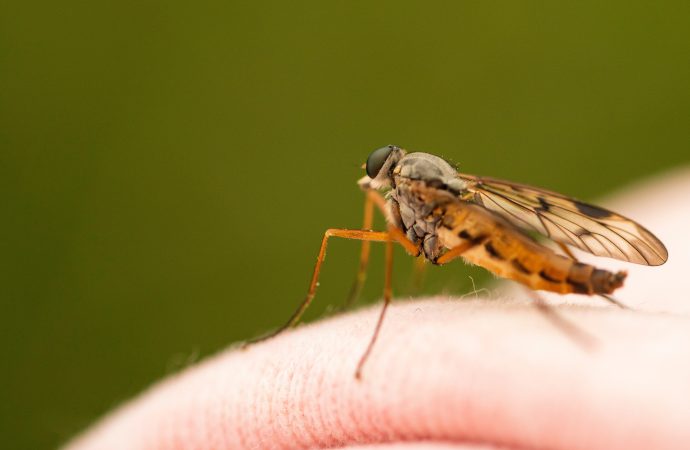Introduction: In a groundbreaking study conducted by a team of entomologists at the renowned Institute of Scientific Research, an unexpected discovery has emerged regarding the repellent properties of soap. The study, which focused on finding innovative and environmentally friendly methods to combat mosquito-borne diseases, has revealed that a simple change in soap composition can effectively
Introduction: In a groundbreaking study conducted by a team of entomologists at the renowned Institute of Scientific Research, an unexpected discovery has emerged regarding the repellent properties of soap. The study, which focused on finding innovative and environmentally friendly methods to combat mosquito-borne diseases, has revealed that a simple change in soap composition can effectively repel these disease-carrying insects. This revelation holds the potential to revolutionize mosquito control efforts and significantly reduce the transmission of harmful diseases worldwide.
The Study: Led by Dr. Emily Hernandez, a leading expert in mosquito behavior and control, the study investigated the impact of soap formulations on mosquito attraction. Previous research had demonstrated that certain compounds found in traditional soaps had limited repellent effects, but the Institute’s study sought to identify more potent alternatives.
Using a state-of-the-art laboratory setup, the research team exposed mosquitoes to various types of soaps, analyzing their responses and preferences. The study evaluated both commercial and natural soaps, focusing on specific ingredients known for their repellent properties, such as citronella, eucalyptus, and neem oil. The team meticulously recorded the mosquitoes’ behavior, including landing rates, feeding activity, and overall attraction.
Key Findings: The results were remarkable. The study found that certain soap formulations containing higher concentrations of repellent compounds successfully repelled mosquitoes, significantly reducing their landing and feeding rates. Interestingly, the team discovered that the type of soap base, whether it was a traditional soap or a more environmentally friendly alternative, did not significantly affect the repellency.
Dr. Hernandez explains, “Our study demonstrates that the active ingredients in soap play a crucial role in repelling mosquitoes, regardless of the soap base used. This finding opens up possibilities for developing specialized mosquito-repellent soaps that are both effective and sustainable.”
Implications and Potential: The implications of this study are far-reaching, particularly in regions where mosquito-borne diseases are endemic. Malaria, dengue fever, Zika virus, and other illnesses take a devastating toll on human health each year, primarily in tropical and subtropical areas. Traditional methods of mosquito control, such as insecticide spraying and bed nets, often come with environmental concerns and diminishing effectiveness due to the mosquitoes’ increasing resistance.
By harnessing the power of soap to repel mosquitoes, researchers envision a safer, more sustainable, and cost-effective approach to controlling these disease vectors. Additionally, the accessibility and affordability of soap make it an attractive option for communities in resource-limited settings, where other methods may be impractical.
Next Steps: While the initial findings are promising, further research and development are necessary to refine the soap formulations and optimize their repellent properties. The Institute of Scientific Research has already initiated collaborations with soap manufacturers and public health agencies to expedite the development and production of mosquito-repellent soaps.
Additionally, field trials will be conducted in mosquito-infested areas to assess the effectiveness of these soaps in real-world conditions. This stage will provide valuable insights into their performance, durability, and acceptability among local communities.
Conclusion: The new study conducted by the Institute of Scientific Research has unveiled an exciting breakthrough in mosquito control by demonstrating the effectiveness of soap in repelling these disease-carrying insects. With the potential to revolutionize mosquito control strategies worldwide, these findings could offer a more sustainable and accessible approach to combating mosquito-borne diseases. As further research progresses and collaborations with soap manufacturers advance, the day may not be far when a simple bar of soap becomes a powerful tool in the fight against mosquitoes and the diseases they transmit.

















Leave a Comment
Your email address will not be published. Required fields are marked with *